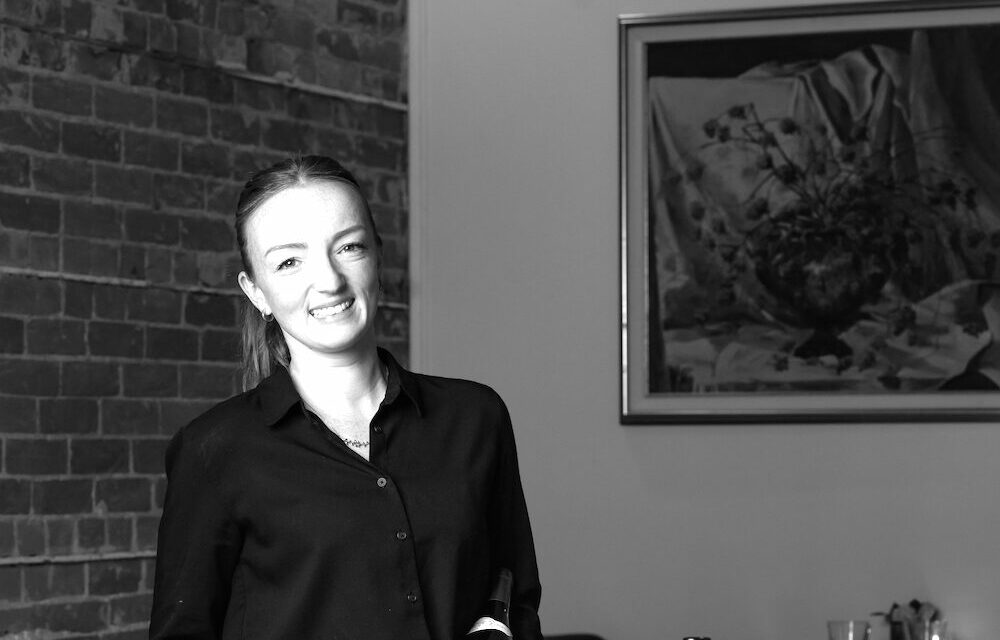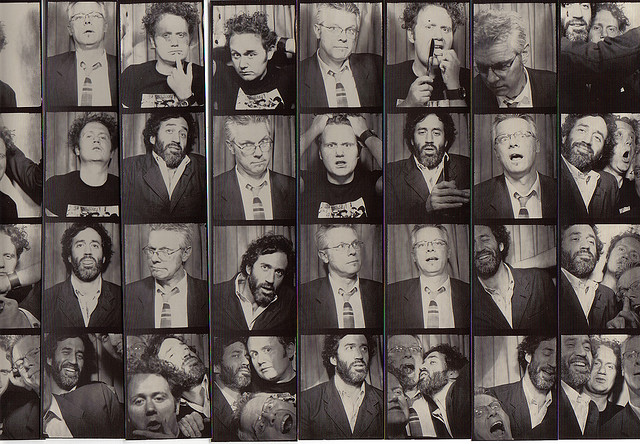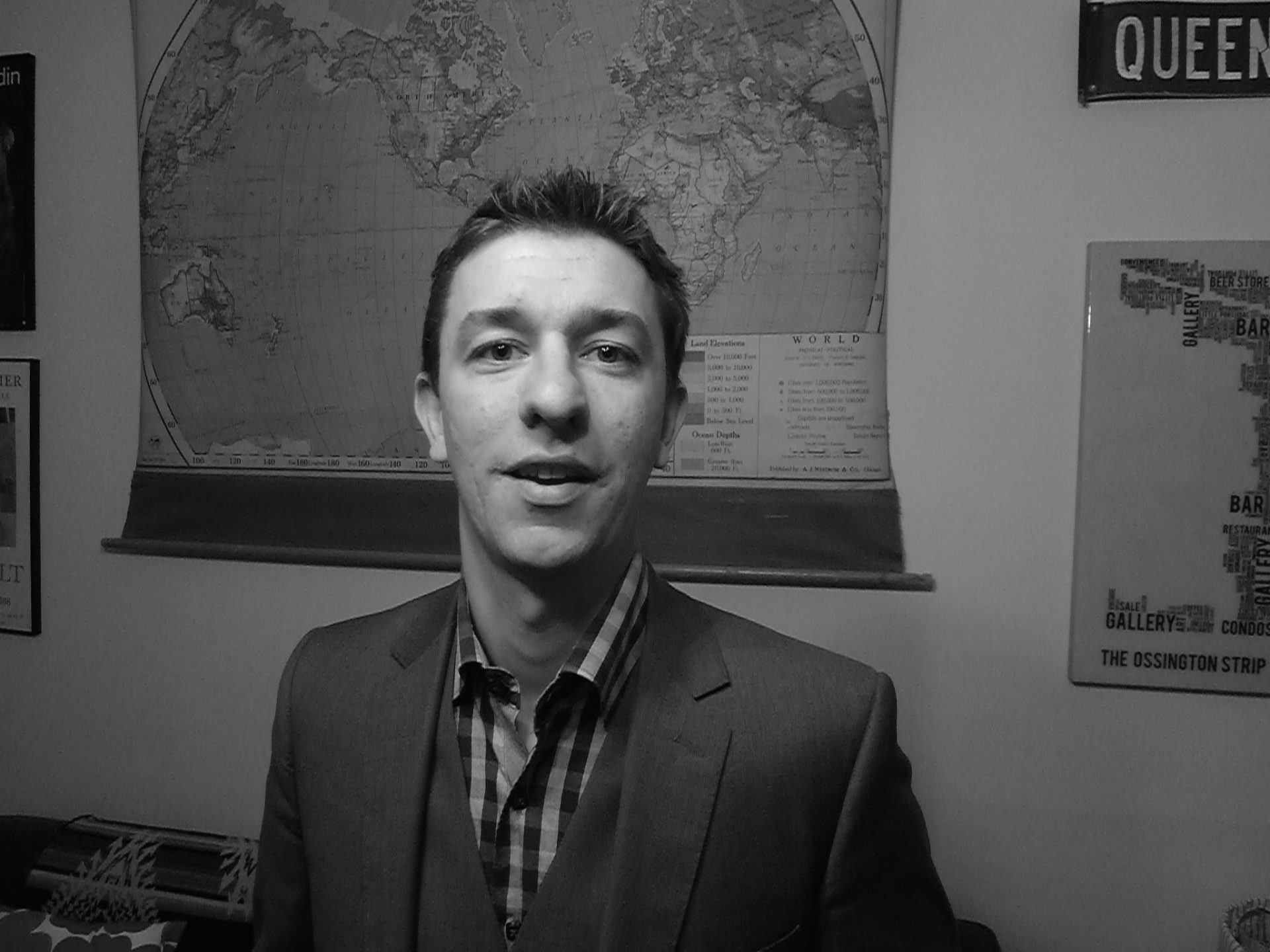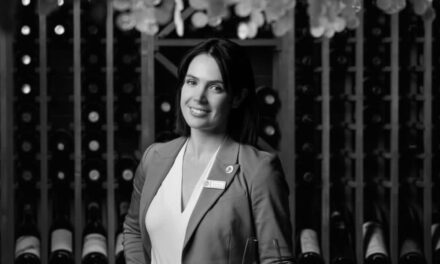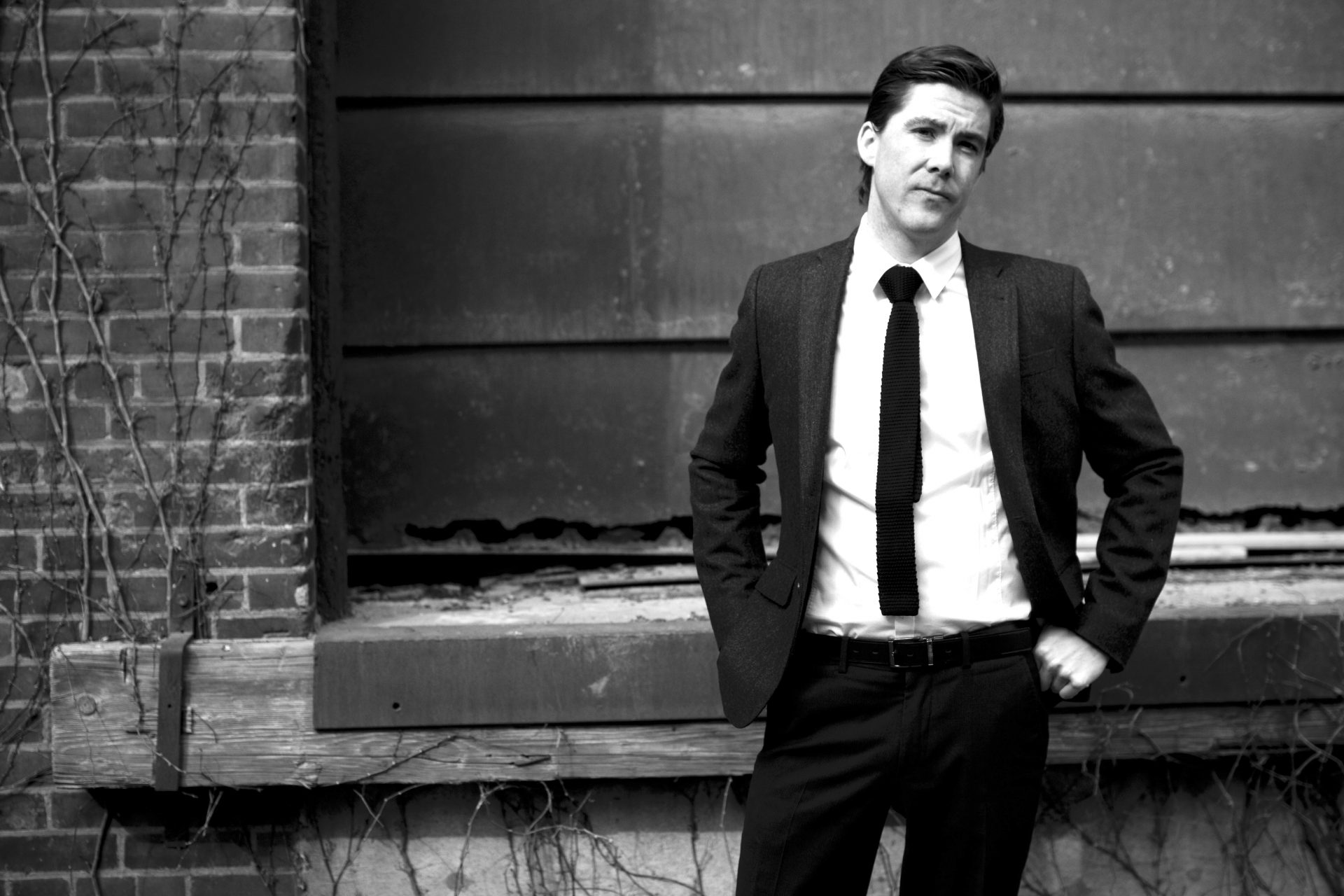At The Gate, Flesherton. Pic by Rick O’Brien Photography
In the first of our twenty-fourth Young Blood Sommelier series (can you believe that?!), we interview some of the most talented up-and-coming sommeliers in Ontario and beyond.
A few years back Many years ago, I was flicking through the pages of a locally published periodical and noticed that, when it came to sommeliers, the same names seemed to pop up over and over again. I was also gradually becoming cognisant of the fact that we more established wine folks were well and truly “losing our edge” to these young blood sommeliers. Being well aware of the depth of new talent that was out there, I finally decided to get together with a couple of fellow Toronto sommeliers, “Old Guard” (Anton Potvin and Peter Boyd) to assemble a line of questioning that would give us an entertaining insight into the minds of these rising and often underexposed stars.
This month we have an in-depth discussion with Mathilde Coquin, a relatively new import to these shores, who heads up the drinks program and chef Jonathan Gushue’s and Jennifer Belanger’s new venture, The Gate, in Flesherton, Grey County. We had the pleasure of dining there just before Xmas last year, and the experience was a truly memorable one, due in no small part to Ms. Coquin’s gracious, informed service and her wine selections.
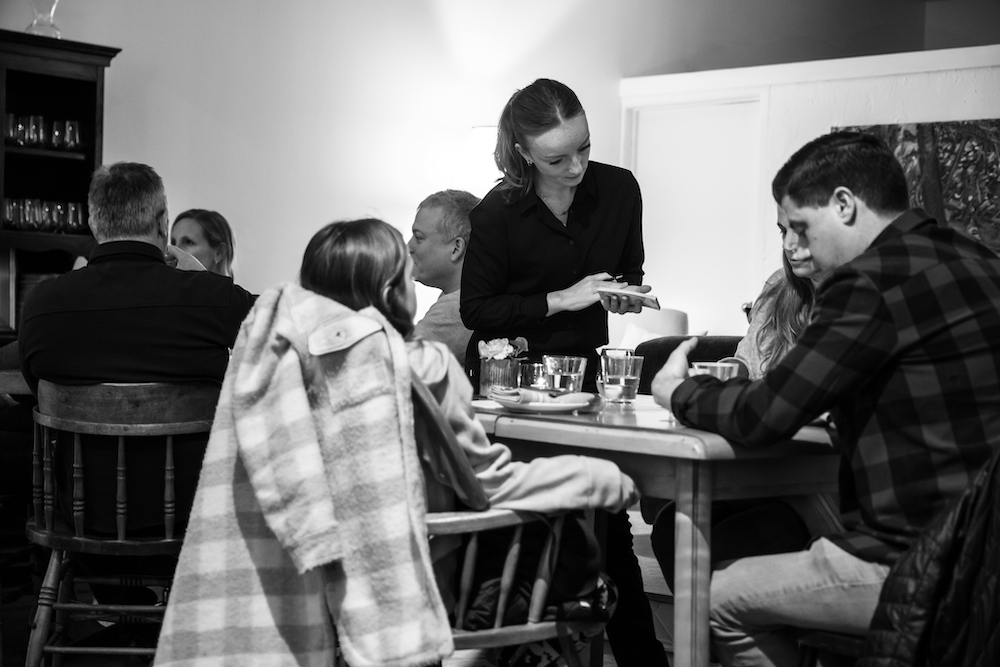
At The Gate, Flesherton. Pic by Rick O’Brien Photography
Good Food Revolution: So, Mathilde, what is it that you are doing these days?
Mathilde Coquin: I’m currently a sommelier/server [at The Gate in Flesherton], and I create and manage the drinks list.
GFR: Please describe a regular work day. What does a normal day entail for you? Is there a normal day?
MC: Set up the room and make sure everything is ready for the first guests, drink-wise and on the floor. During the service, I’m taking on the role of a server with a focus on wine and drinks.
When the service is over, check orders and restock the drinks. Every day is different; we try to be better than the day before by thinking about new cocktails, looking for different wines, meeting locals and creating connections.
GFR: Hopefully, we are on the other side of this pandemic. How did the pandemic impact your professional life? And how have you bounced back?
MC: During the first hit of the pandemic, I was in New Zealand. On our side: 10 weeks of lockdown, we rested as it was the end of a busy summer, tidying the house, cooking, walking around the lake and the ghost city of Taupo, New Zealand, and waiting until 6pm for a glass of wine or an experimental cocktail. With my partner Quentin, he’s a chef.
We watched a lot of series about chefs around the world or incredible restaurants on the planet, and quite a few were in Canada. Canada has always been on our country list, but I believe that pushed us even more to get a visa. So, it didn’t impact our professional lives as we were lucky to keep our jobs, and we had a slow opening as all the borders were closed. We had time to visit New Zealand during long weekends, and support the locals, as the tourist impact on business was extreme.
GFR: How aware of wine were you while growing up? Were you around wine from an early age?
MC: Yes, even if we don’t have wine in the Brittany region, wine finds its way to us!
GFR: Can you remember your first taste of wine?
MC: Humm, I think it was at one of the Christmas dinners when I was 10 or 12 years old, maybe. My dad asked me if I wanted to taste the wine with some cheese, I tasted it and it was like vinegar-alcohol-unripe berries. Of course, later in catering school, every week a course was about food pairing—a good memory about a Gewürztraminer with munster cheese.
GFR: When do you feel children should be introduced to the wonderful world of wine?
MC: I’d like to say when they start to wonder about it, when they don’t want to play on the swing anymore and want to stay with the adults.
GFR: So who or what gave you your very first insight into the world of wine? Did you have a wine epiphany?
MC: My very first insight was in school, but a better insight was when you worked in Michelin restaurants and were listening to the sommeliers. And in Ireland, it was the springboard!
GFR: Please tell us a little about your “Sommelier history.”. What kind of experience and training, wine-wise, did you have before doing what you are doing today? And looking back, if you could, would you have made different decisions?
MC: 15 to 18 years old I was in a catering school where everything started. To be honest, I didn’t plan to be a waitress or sommelier. As a kid, I wanted to be a hairdresser, or why not a wedding planner or an activity leader to travel? I don’t know here, but in France, at 14 years old, you have to decide if you want to stay in a classic high school or if you want to go to a professional school. I was an average student and a bit bored in school. So I decided to work at a boarding school ASAP. Over the course of three years, I cooked, served, and learned about the world of gastronomy.
At 18, I moved to Nantes for a high diploma and got a job with Michele VETELE, a sommelier and owner of a 2-Michelin-starred restaurant in La Plaine Sur Mer. I learned a lot about the world of wine and some winemakers magic, as well as the precision about details.
After one year, with my partner, we decided to travel and learn English, I couldn’t speak or understand anything in English; it was a shame for me. So we got a job at Ashford Castle in Ireland, a leading hotel. I started as a runner and ended up as a junior sommelier at an awarded restaurant (Wine Spectator ‘Best of Award of Excellence’ 2017), Philip DUNNE was my mentor! The team was extraordinary: Cathryn, Lizzie, Niall, and Nick—they opened my eyes to New World wines. By the way, the wine cave is the most beautiful one I have ever seen.
Since then, I’ve been a server who loves to sell wine and any kind of drinks. I have been lucky to work with talented sommeliers and barmen, who love to share their savoir-faire around the world, before flying to Canada a year ago.
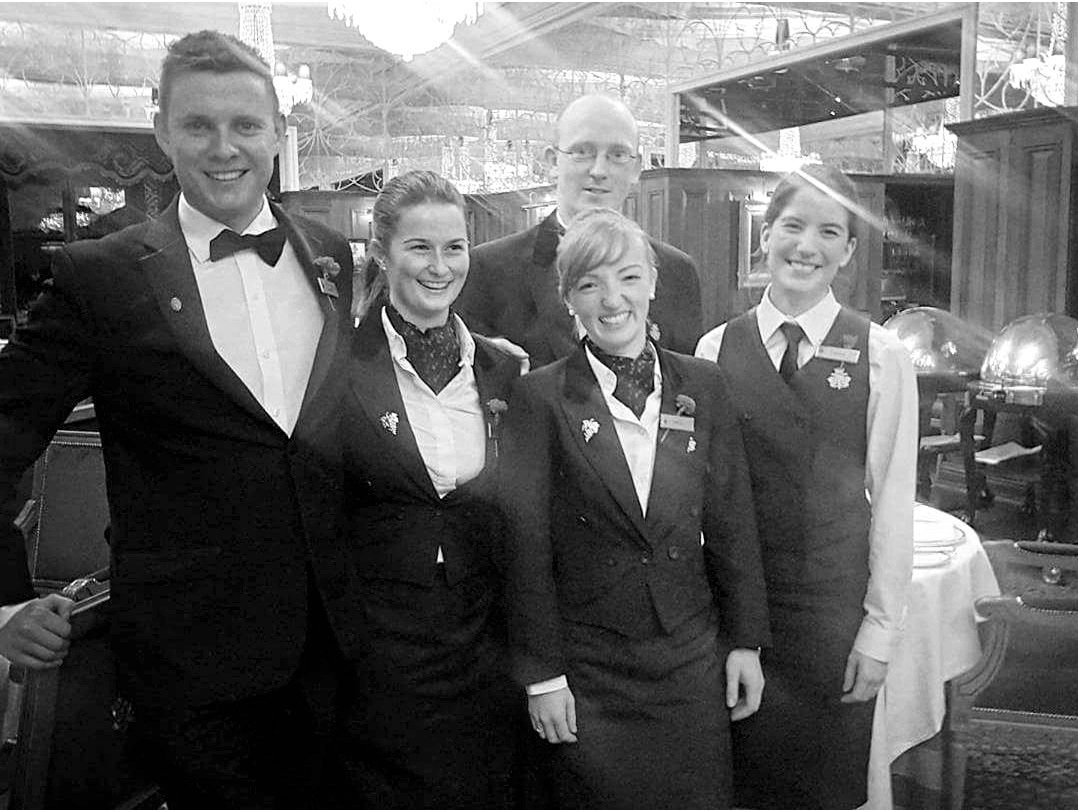
Ashford castle sommelier team
GFR: When did you first decide that you would actually like a career in wine? … and was it with a view to being a sommelier?
MC: I promised Philip, the head sommelier at Ashford Castle, that I would never let the wine go away from my career, but I knew since my first job that I would love to know more about it, and experience by experience, I just got closer and closer.
GFR: Tell us a little about how you find the food and wine scene in the Beaver Valley/Grey County, Ontario. It must have been a bit of a culture shock for you?
MC: To be honest, I missed affordable quality wines, cheese, saucisson, and bread. I’m sure there is a lot of produce around here, but it’s not easy to get.
GFR: Please give me a little insight into the wine program at The Gate. When I was there, I noticed you had three whites and three reds, all by the glass and bottle. I’d love to hear your reasoning behind that.
MC: With Jen (manager), we decided to have a small and easy wine selection to start, and in a bistro in France sometimes you just have white and red from the region by the glass and bottle. So I selected one dry, one fruity and a bigger white wine to satisfy the palates of everyone and then the same thing for the red. As well, we didn’t want Pinot Grigio, Chardonnay, or Cab Sauvignon, so we are trying to settle on lesser-known varieties.
GFR: How have you found the clientele’s response to the wine list? I’d be curious, as in the past I’ve often found that the customers at higher-end restaurants are looking for some pretty uninteresting (but expensive) bottles.
MC: Indeed, some of the clients don’t understand the list, but I am happy to explain the reason for our choices. We don’t want expensive bottles on the list just to show people that we have them sitting in the cellar. I prefer having reasonable prices and having some unusual wine on the list to let our guests discover new things, like our Pinot Grigio fan, who loves our Portuguese wine, which is tropical and mineral!
GFR: Let’s talk a little about the differences in wine cultures between France, Australia, New Zealand, Ireland, and Canada, as you have worked in all these countries. I’d be very interested in your take on that. It’s a big question, I know!
MC: Yes, big question… We can find similar stories even if, of course, the terroir-grapes-method are different, I will explain…
I am quite familiar with the Loire Valley, having lived there for about 8 years. I can tell you that it is not the most famous wine in France, it was known as a cheap wine to drink with oysters, and this is it! Now there are talented winemakers, who understand and introduce different terroirs, using different fermentation methods (amphora, skin contact, wild ferment, concrete eggs, etc.) to change the profile of the wine and, of course, the reputation of the Muscadet.
Like in Australia, some regions are just about quantities and sell shoddily oaked chardonnay, as the method isn’t the best but I think it is just to satisfy a certain demand, but beautiful wine around Melbourne and south west Australia.
About Ireland, I didn’t drink a lot of wine outside of work, my choice was more about whiskies, gin and beer, supporting locals!!!
New Zealand is a small country but has a big variety of wine as the terroir is so different in the north and in the south. Of course, I tasted a lot of Sauvignon Blanc and Pinot Noir, as well as some unusual grapes made by winemakers from overseas, I’m thinking about Hans Herzog estate. Also, I won’t forget Waiheke Island wines!
GFR: The Sommelier world is notoriously full of pretentious arseholes, and after seeing that film Somm a few years ago, I still worry about the emergence of a new Wine Bro culture… Also, I have picked up on a LOT of that vibe from some of the usual suspects in the mixology crowd—full-on Jordan Peterson fans and all that stuff. Believe it or not, I saw one of the usual suspects defend Andrew Tate recently. What the hell is going on there? I’d love to hear your thoughts.
MC: To be honest, I had to do some research about this question. And I don’t know what to say, except that there are pretentious people everywhere!
GFR: The best answer yet!
Speaking of which, we are having some really important conversations right now about the prevalence of sexual harassment in the workplace, and what can be done to eradicate it from the culture.
I’d be interested to hear your take on the topic, and perhaps what you have witnessed yourself during your time in the restaurant world. big question, I know, but I feel it’s a topic that deserves discussion.
MC: I’m open to this discussion. For my side, I remember some uncomfortable situations in the past, but now it’s over and I believe that built my character too.
The prevalence of sexual harassment is still important in any kind of job, I think, I don’t know how we can change it as we are all different with different sensibilities, education and cultures.
GFR: So, natural wine is basically the new normal in many places, perhaps in Flesherton?… I’m pretty choosy when it comes to my personal forays into that world. What’s your take?
MC: I like natural wine, but it’s taking risks as the wine is alive. No sulfite wine is too difficult to control (example: storage), and I think the demand is too low; there are very complex wines. But Biologic or biodynamic winemakers are my goal. I love the passion about the terroir, how they understand the wellbeing of the vine… I think it is like a step back about machinery and chemicals, more quality than quantity.
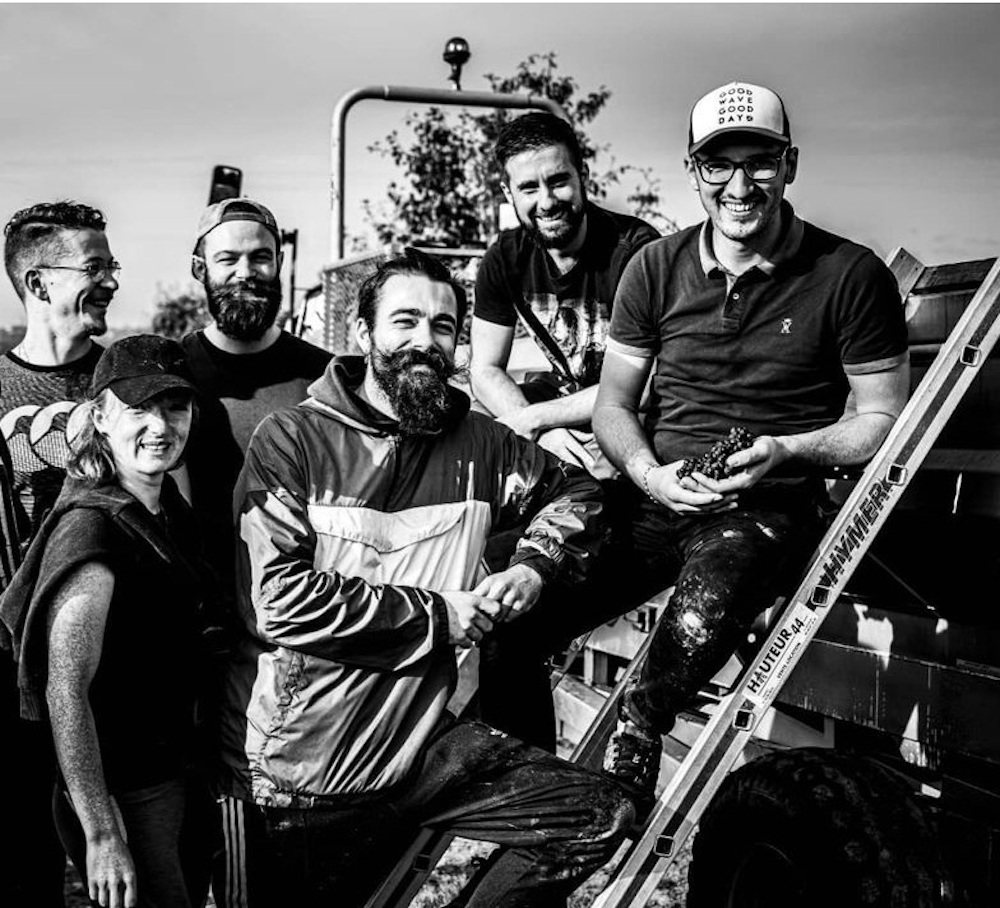
Harvest 2020 at Fred Niger, natural winemaker in Muscadet, Loire Valley
GFR: How would you say that your palate has evolved over the years?
For example, I went through an old vine Zinfandel phase. I revisited such wines last year… Hmmmm… interesting, but really not for me any more. Although, saying that, I’ve been quite enjoying some of them again recently!
MC: Hmm, of course my palate evolved, but I never had a similar situation, as every time it’s a different vintage, different mood day, different place… and everything changes the perception of your taste.
GFR: How do you feel about Canadian wines?
MC: Difficult question this one, as I haven’t had the chance to visit a lot of wineries yet!
But I believe that Canada has a huge diversity of terroir and climate, but they aren’t playing enough with it.
I went to Niagara, and they were all growing 10 or more different grapes and always the same style of wine. I don’t know if it’s because they are so close to the US, but I found them too Californian in style [for my palate]. They are probably answering the demand of their neighbours who are crossing the border but want something cheaper and closer to the western US. I’m sure Canadian terroir has the potential to produce good-quality wine with unique and different tastes than in the US.
GFR: Oh, there are so many terrific Canadian wines these days… I’ll have to introduce you to some of them!
What do you think we do well here in Canada?
MC: I enjoyed some Chardonnay, Pinot Noir, and Cabernet Franc when I visited some organic wineries in Niagara, I will add Icewine too, as it’s still Canada’s reputation. But I need to go on a wine trip, as I haven’t tasted a lot yet!
GFR: Perhaps I can help with that. I think I need to introduce you to some superb Canadian sparkling wines too, as you mentioned you hadn’t experienced any yet.
MC: Hummm, let’s see in a couple of months.
GFR: How do you feel about Canadian support for our local wine industry?
MC: I don’t think there is enough support, but from what I can see, the [steep] price doesn’t help the consumption.
GFR: Just as there is everywhere in the world, there is quite a lot of dreadful wine coming from Canada (BC, Quebec, Ontario, et al.). How do you feel about the issue of people simply promoting something because it is local and not because of its quality?
MC: Indeed, local means local, it’s good to support locals but doesn’t introduce quality. Social media doesn’t help; if you have an Instagram-worthy spot, even if you have local, dreadful wine, pretty sure it will work anyway. Compared to the single winemaker, who doesn’t have time to socialize as he is too busy producing the finest wine.
GFR: Your work has allowed you to do a fair bit of travel, right.
That’s one thing that I really missed through the pandemic, going on wine trips… although I don’t know if I’ll ever want to get on a plane again!
Is there anywhere you would really like to visit? And why?
MC: For sure, I will go to Okanagan Valley and Sonoma at some point. The reason: discover new places, wines, and hear new methods and stories.
GFR: Which wine regions have you had the opportunity to visit over the years?
MC: A lot, I’m lucky that my partner loves wine too, and we visit lots of wine regions when we travel or during the days off.
France: Loire Valley, Rhône, Alsace, Beaujolais, Bordeaux
Australia, wine region from Perth to Melbourne along the coast.
New Zealand, everywhere except the top north.
GFR: Have you ever made your own wine?
MC: No, but now I will dream about it!
GFR: And where would you like to make wine (in a pipe dream)?
MC: On a mountain slope facing a big lake or the ocean, a cooler climate region! Please, no 40 degrees Celsius during the harvest.
GFR: What have been your career highs and lows?
MC: Highs? Working with talented chefs and sommeliers around the world, taking the post of a junior sommelier in a country where I couldn’t speak properly.
Lows? Arriving in a country that you don’t understand anything about, you lose all your means and start again from the bottom of the scale.
GFR: Who is, in your mind, a real role model for sommeliers?
MC: Let me think… Michele VETELE is definitely my number one. I remember her saying to the guest that he picked the wrong wine for the food, everything with explanation and why she recommended another one. It is when cuisine and service become complementary.
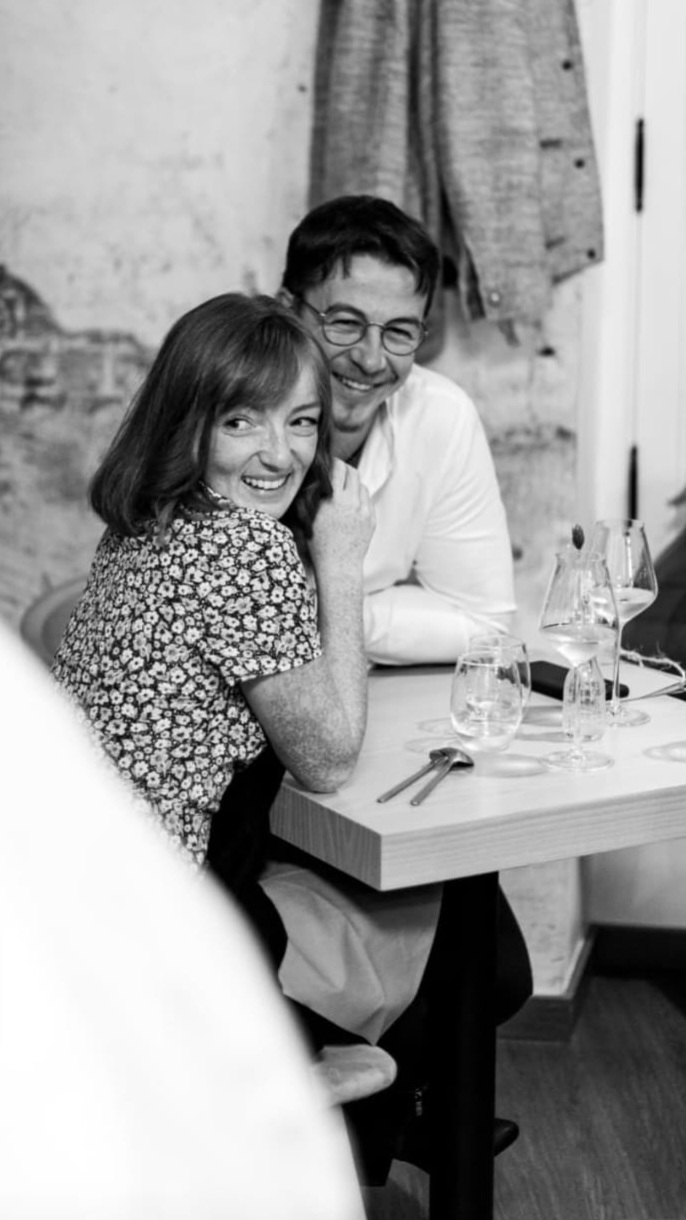
Obbo restaurant, Nantes, France
GFR: And for Wine Agents/Importers?
MC: I don’t know a lot about here yet, but Kearney Cooper (Nicholas Pearce Wines) was the first one to offer a tasting and help a lot with this new adventure, which started on the 10th of December 2023.
GFR: Do you have nightmares about working with wine? I do it regularly, and it usually involves being unable to find bottles in a cellar. And the clock is ticking away. I have them all the time, and I haven’t been in the role for over 14 bloody years!!!
MC: Gosh, I can imagine that ! I’m very bad at memorizing nightmares, but I’m pretty sure I’ve already dreamed about breaking an expensive bottle in the restaurant, staying locked in the wine cave, bringing an expensive wine to the wrong table…
GFR: Wine folks famously have their Sundays off… What’s your idea of a perfect Sunday?
MC: Brunch, activities (hike, bike, ski), good food, dinner with wine.
GFR: Where are your favourite places to dine and drink locally these days… perhaps tell us a personal hidden treasure of yours.
MC: I love Gibson & Co. in Collingwood, Hearts Tavern in Kimberley, but I have a list that I haven’t explored yet, such as The Pine, Bruce Wine Bar, Downhome: Sumac & Salt, Marilynne…
GFR: Do you like to cook yourself? What’s your favourite dish to cook these days?
MC: Yes I do, during the winter cheese gratin !!
GFR: And have you had any cooking disasters recently?
MC: Hahaa, usually I conceal it, but last time my pear amandine tart wasn’t cooked through in the middle even after one hour in the oven, I still don’t understand why?
GFR: Do you feel that there is a good Sommelier community in Ontario?
MC: Yes, there are good places to drink wine, so they are somewhere.
GFR: Do you hang out often with other sommeliers? And if you do, do you only shoot the shit about wine?
MC: Not anymore since we moved to Flesherton, and trust me, my liver is happy.
GFR: Do you have many non-industry friends… How do they feel about what you do for a living?
MC: Not really, as I have been in the industry since I was 15 years old. But some of them change their career to have a better life (partner, children, hour issues, or health reasons). They are happy for us that we travel a lot to follow our dreams and, at the same time, live our passion as our courses help us find good jobs in different countries.
GFR: What do you feel you would be doing if you were not doing what you are doing today?
MC: Maybe a travel agent? I love organizing travel and weekends, and I would be able to travel even more to discover new places, the best restaurants or hotels…
GFR: Do you have a favourite food/wine related scene in a film/movie or show?
MC: My partner forced me to watch Le Grand Restaurant with Louis de Funes, and it’s hilarious. It’s a perfect caricature of French fine dining restaurants.
GFR: I must check that out! I’m not familiar with it at all.
What are your thoughts on blind tasting wine?
MC: I love that; it is a good exercise, but if I’m lucky, I’ll be able to just find the grapes.
GFR: Are you a better blind taster with or without a bad hangover? I’m definitely the former…
MC: Me too!
GFR: Some of the best tasters I know are heavy smokers… What are your thoughts there?
MC: Hmmm, is it a good excuse to keep smoking? I’m not a smoker and never will be, even if that helps me be a better taster.
GFR: In your mind, what is “hot” in the world of wine right now? And why?
MC: Natural wines—people want to know what they are drinking and eating! Healthier without preservatives.
GFR: Aside from these fashions in wine drinking, what’s your current favourite wine style/region? And why?
MC: Loire Valley 100%! The varieties of wine, simple and friendly winemakers, the value for money… but it’s also the one I know best!
GFR: And what’s not so hot? What has fallen out of favour? Why do you feel that way?
MC: Maybe dessert wines, too sweet and are often replaced by a hot drink or an after-dinner cocktail/digestif.
GFR: When it comes to wine, is there anything that you feel is terribly overrated? And why?
MC: Wine matured undersea, or any kind of similar new invention… It’s really just marketing!!
GFR: What is your favourite wine pairing right now—something nice and seasonal?
MC: Looking at The Gate menu, I will say the pan-fried salted cod with smoked beets, allium, and coriander with the lightly fresh Beaujolais.
GFR: What is your least favourite part of your job as a sommelier? For me, it was the f****** inventory. Oh, and breaking down boxes… and the resultant papercuts (I have such soft hands!)
MC: Doing restocking after a crazy service. Finding the motivation to bring boxes upstairs! Inventory doesn’t matter for me, as counting is fine, but inputting everything into the computer after that is taking too long!
GFR: What is your weapon of choice when it comes to a corkscrew? And why?
MC: A Pulltex corkscrew; it’s the best I ever had. I received one as a present at 16, and it followed me for about eight years before it broke. The knife is curved, double hinged, and has a nice hand holding. So last year, Santa Claus offered me his little brother.
GFR: Due to us being around alcohol, many people in our industry often have quite the increased tolerance for wine/booze, or they develop issues. What is your limit, and how do you keep yourself in check?
MC: I don’t really control it; we have one life! And I’m pretty active, being busy on days off, so I think it keeps me away most of the day, but when it’s dinner time, we go out or cook with a good drink. We already don’t have time to have dinner when we are working, so on a day off, it’s our little enjoyment.
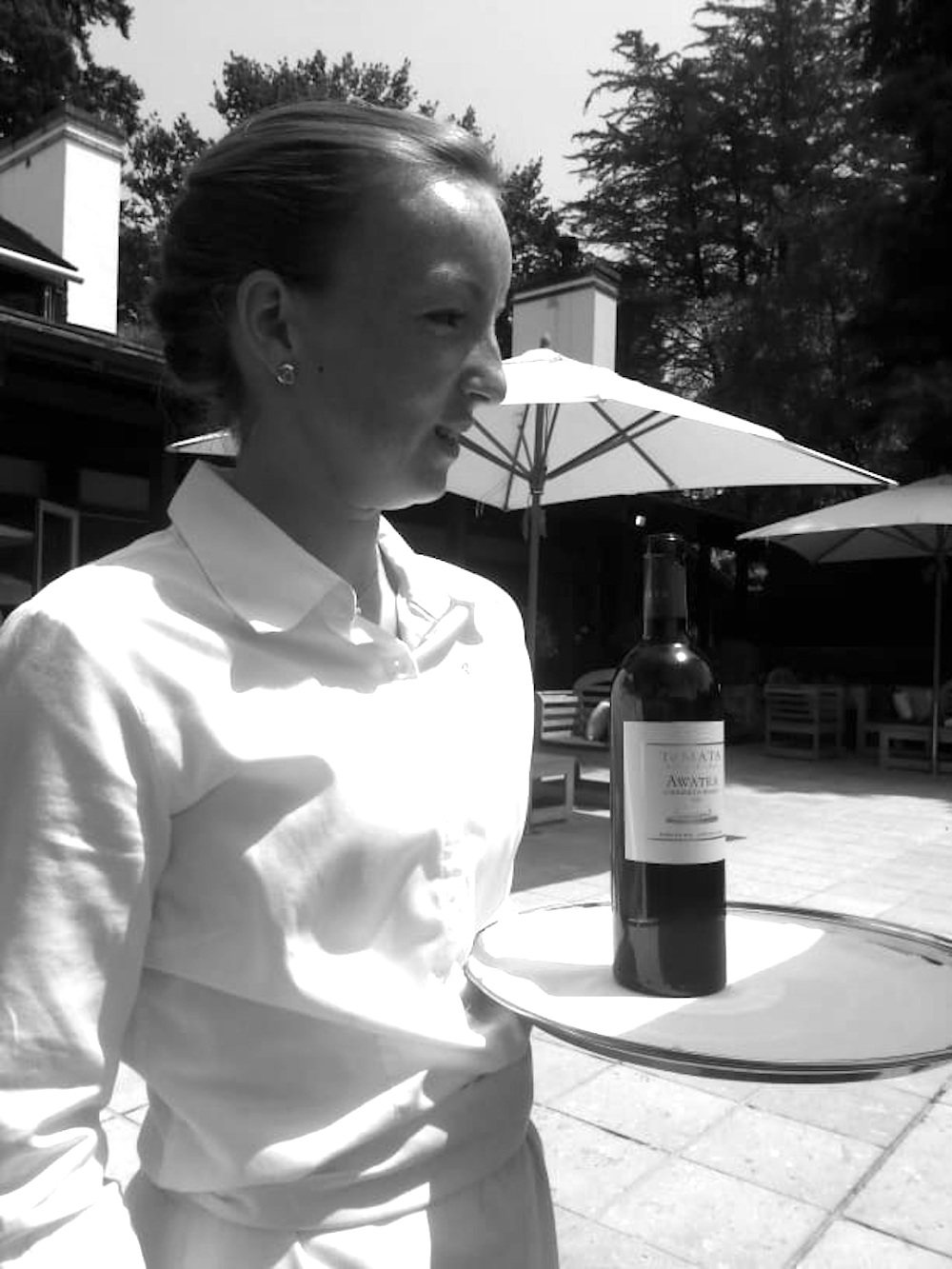
At Huka Lodge, Wairakei, Taupō, New Zealand
GFR: There’s a lot of open discourse right now around the topic of both drug and alcohol abuse within the restaurant/wine world. Would you care to share a few of your thoughts about that side of the business? To be quite frank with you, the thing I miss the LEAST about working in that environment is the late nights of drinking and recreational pharmaceuticals. I don’t think my body could take it any longer anyway!
MC: Indeed, I already abuse it, but when you need to discuss with a colleague an issue during a busy service, a glass of wine or a bottle always helps. I have never touched drugs, but I can understand that people find the need to release the pressure after an intense day, and sadly, it often becomes addictive.
GFR: Speaking of which, have you ever been “cut off”? If so, where and when was the most recent time? I think it happened to me back in Scotland once… hazy memories… at the City Café.
MC: Never, but I sometimes had one hour breaks with colleagues between shifts with a light snack paired with wine. It was pretty intense to do a service after that. I won’t do it again !
GFR: Which leads rather neatly into the next question… do you happen to have a good hangover cure? None of the cures given to me by previous interviewees have really done the job for me… well, apart from the suggestion about CBD gummies.
MC: Water ++, coffee and a big breakfast!
GFR: How many wines do you “taste” in a week these days?
MC: Not much, depending on what I’m doing during my days off or if I have a tasting planned.
GFR: When tasting with agents, do you choose to spit or swallow?
MC: 50\50
GFR: What’s your “house” wine at home right now?
MC: I don’t really have “house” wine; I like to have a good selection of different wines and pick one depending on what’s for dinner.
GFR: Most remembered glass of wine ever?
MC: It is difficult to choose one, as some are related to good memories too… I chose Côte-Rôtie Domaine Jamet to accompany a pigeon dish with chocolate and spices.
GFR: Oh… that does sound good.
What is your perfect glass (or bottle) of wine at the end of a crazy day at work?
MC: Something fresh to cool down after a busy service! I will be happy with a Muscadet Sur Lie.
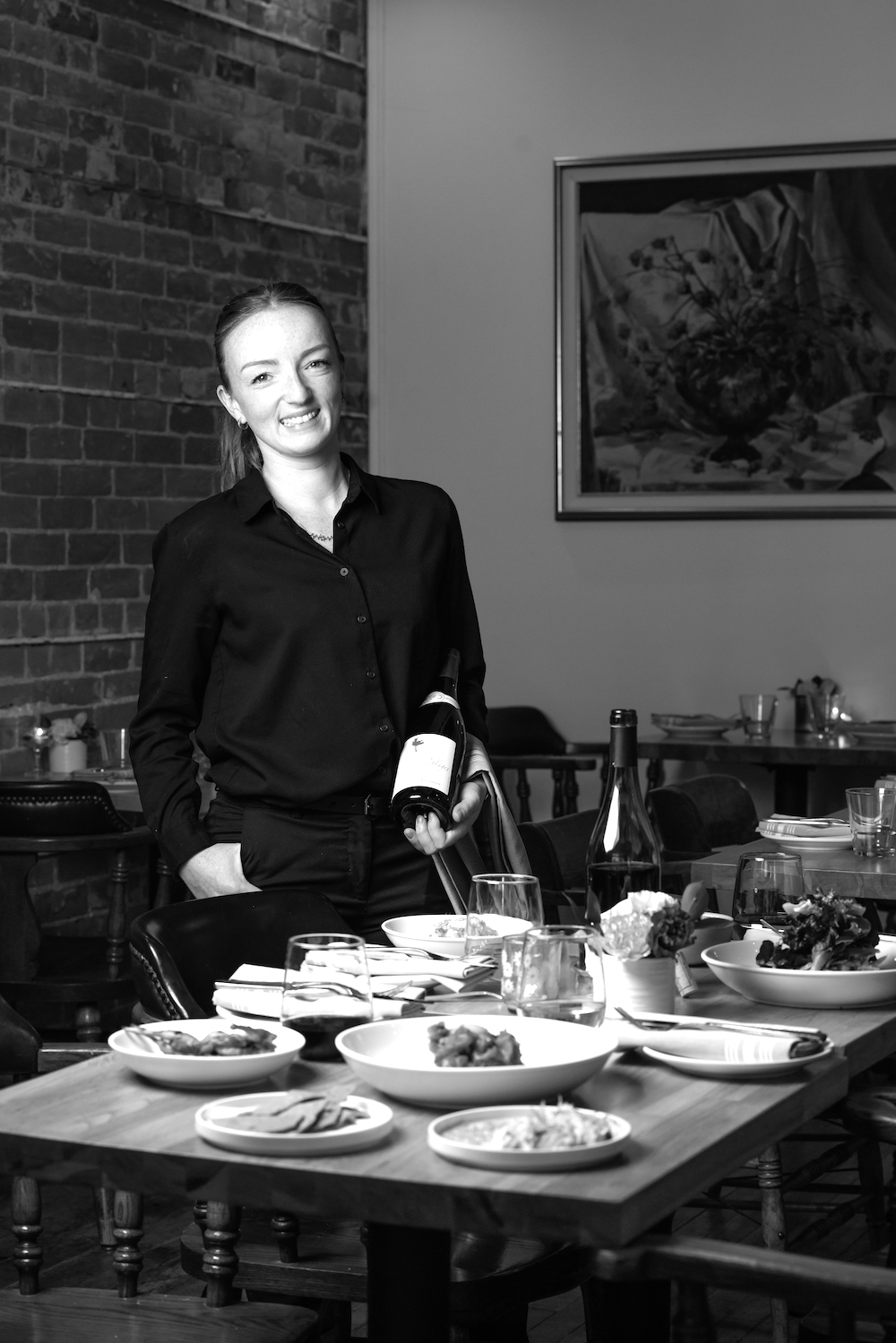
At The Gate, Flesherton. Pic by Rick O’Brien Photography
GFR: Coffee or tea?
MC: 80% coffee
GFR: Lemon, horseradish, mignonette, or hot sauce?
MC: Lemon!
GFR: Vindaloo or Korma?
MC: I never had a Korma, I think.
GFR: They can be very good!
Milk or dark? And preferred cocoa content?
MC: Dark, 70 or 80%!
GFR: Ketchup, mayonnaise, or salt & vinegar?
MC: Mayo!!!
GFR: Blue, R, MR, M, MW, W, Charcoal?
MC: MR
GFR: Volatile acidity, brettanomyces, or mousiness? (Hehe…)
MC: Can I use my Joker card?
GFR: Thank you for taking the time, Mathilde. It is very much appreciated. This is an extremely long interview.
MC: Thanks Jamie, indeed and a good English test for me ! 😉
Edinburgh-born/Ontario-based sommelier, consultant, writer, judge, educator, and Dad, Jamie Drummond is the Director/Editor of Good Food Revolution.
Peter Boyd has been a part of Toronto’s wine scene for over two decades. He has taught the Diploma level for the International Sommeliers Guild, and has been the sommelier at Scaramouche Restaurant since 1993. He also writes about wine, food and pop culture and raises show molerats for fun and profit. He’s also one of the most solid guys in the business.Trust this man. Seriously… he seriously knows his shit and just celebrated his 85th birthday!
A well-known and much respected figure on the Toronto food and wine scene for almost twenty years, Potvin has worked in many of the city’s very best establishments including Biffs, Canoe, and Eau. In 2004 Potvin opened his incarnation of the Niagara Street Café, a restaurant that has gone from strength to strength year after year, with universal critical acclaim. Anton spends much of his time traveling and tasting wine and has been ranked highly in consecutive years of the International Wine Challenge. After working as GM at DaiLo with Chef Nick Liu and Sommelier Pete Hammond, Anton is now selling wine with Banville Wine Merchants and explores the world of mycology in his spare time.

